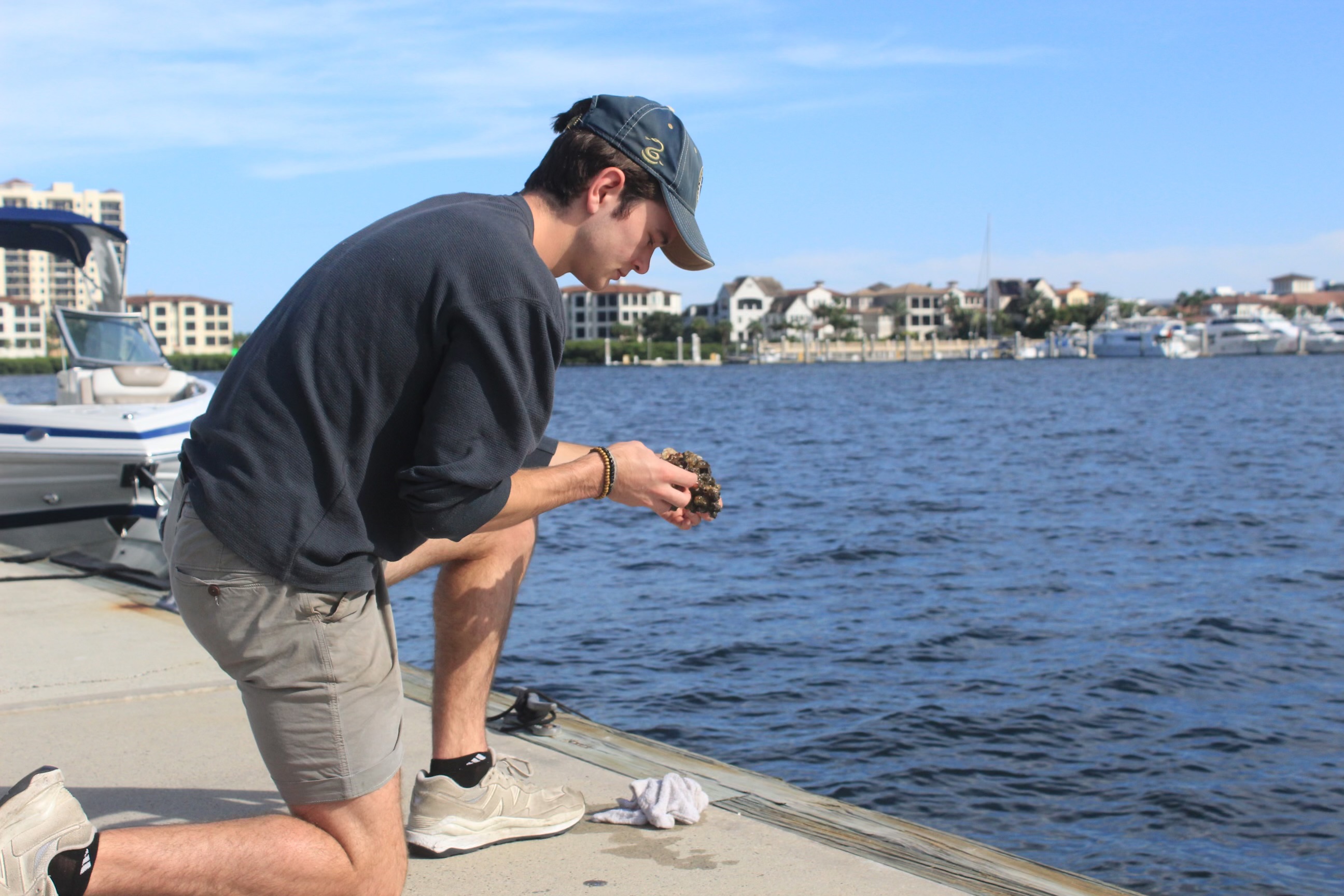

Oysters are a vital part of the Florida estuarine ecosystem and commercial fisheries industry. They protect estuarine environments by preventing erosion from storms and provide essential habitat and structure for other marine species. Oysters comprise the largest portion of the United States’ aquaculture production and they offer a way to address global food insecurity. Despite these benefits, the eastern oyster (Crassostrea virginica) faces multiple ecological and anthropogenic threats, including pollution, climate change, overharvesting, and salinity change, ultimately leading to an 85% decline in global oyster reef distribution.
Few studies have used transcriptome sequencing to analyze variable gene expression and for pathway analysis in eastern oysters as a response to stressful salinities as an isolated variable. This project will utilize transcriptome sequencing to examine how extreme low and high salinity events influence the expression of genes and alter pathways related to stress response in eastern oysters. We hypothesize that when eastern oysters are exposed to stressful salinity conditions, molecular pathways related to stress response, including the ER associated degradation pathway and the unfolded protein response pathway, will be upregulated . Further understanding of these molecular pathways will provide insight into the eastern oyster’s stress response system and help guide future work in oyster sustainability.